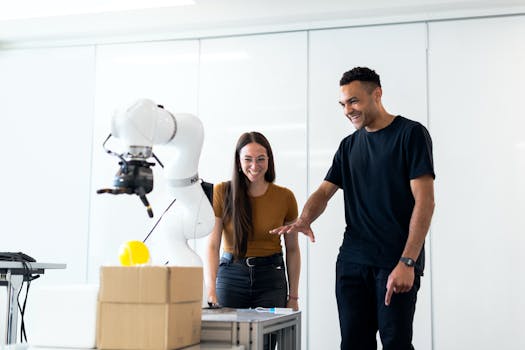
Bridging the Digital Divide: Empowering Students with Disabilities in Benin City
Benin City, nestled in the heart of southern Nigeria, presents a vibrant tapestry of culture and history. However, beneath this rich surface lies a significant challenge: ensuring equitable access to education for students with disabilities. While the city boasts a rich cultural heritage, its educational landscape struggles with a persistent digital divide, significantly impacting the academic progress and overall well-being of students with disabilities.
The Stark Reality of the Digital Divide
The digital divide in Benin City manifests in several stark realities. Many students with disabilities lack access to even the most basic digital tools and resources. This disparity is not merely an inconvenience; it's a significant barrier to their academic success and participation in the increasingly digital world.
My experiences working with OrphanHub Foundation, a non-profit organization dedicated to providing digital literacy skills to orphans, disabled children, and underprivileged youth, have illuminated the depth of this issue. This foundation, which grew from my personal National Youth Service Corps (NYSC) Community Development Service (CDS) project, provided me with firsthand insights into the challenges faced by these students. Many had never even touched a computer before. Public schools often lack the necessary infrastructure for digital learning, including functioning computer labs, reliable electricity, and internet connectivity. Overcrowded classrooms further exacerbate these challenges.
Personal Stories of Resilience and Struggle
Let's consider the individual stories that highlight this pervasive digital divide. Efosa, a bright student from a local secondary school, exemplifies the challenges faced by many. His school lacked a functioning computer lab, and his family couldn't afford a personal computer or internet access. Despite his innate aptitude for technology, his exposure to digital learning remained severely limited. Efosa's experience is sadly not unique; countless students in Benin City share similar tales of missed opportunities due to inadequate access to technology.
Joy, a visually impaired student, presents a different yet equally compelling narrative. Her passion for learning is constantly hampered by the lack of accessible learning materials. Braille books are scarce, and digital resources, which could significantly enhance her learning experience, are inaccessible due to the absence of screen readers and other assistive technologies in her school. This lack of accessibility creates an uneven playing field, hindering her progress despite her determination and academic potential.
A Multifaceted Approach to Addressing the Challenge
Overcoming the digital divide in Benin City necessitates a comprehensive and collaborative approach. It's not a single problem with a single solution. The solution requires a three-pronged approach:
Investing in School Infrastructure: The foundation of change lies in upgrading school infrastructure. This includes establishing well-equipped computer labs with reliable internet access and a consistent power supply. Partnerships between the government, civil society organizations, and the private sector are crucial to securing the funding and technical expertise needed for such improvements. This investment is not just about providing hardware; it's about creating a supportive learning environment where technology can be effectively utilized.
Teacher Training and Development: Equipping teachers with the skills to effectively integrate technology into their teaching methods is paramount. Professional development programs focusing on digital literacy and inclusive pedagogy can empower educators to leverage technology's potential to enhance the learning experience for all students, especially those with disabilities. This means teachers need more than just technical skills; they need training on how to adapt their teaching strategies to meet the diverse learning needs of their students.
Strengthening Community-Based Initiatives: Organizations like OrphanHub Innovative Foundation play a vital role in bridging the digital divide. These initiatives provide digital literacy training, resources, and mentorship to underprivileged students, ensuring that no student is left behind. Expanding these community-based programs and encouraging similar projects throughout Benin City is critical for achieving widespread impact.
A Collaborative Path Forward
The challenges of digital accessibility in Benin City are significant, but they are not insurmountable. Through collaborative efforts involving the government, private sector stakeholders, educators, and community organizations, we can create an inclusive educational system that empowers all students. This collaborative ecosystem is vital in addressing the complex issues surrounding the digital divide.
The stories of Efosa and Joy, along with countless others, serve as a constant reminder of the urgency and importance of our mission. Their persistence in the face of adversity underscores the need for equitable access to technology and education. By working together, we can build a future where every student in Benin City, regardless of their abilities or background, has the opportunity to thrive in the digital world. This requires not just providing access to technology, but also ensuring that the technology is accessible and inclusive for all learners.
The Broader Impact
Bridging the digital divide in Benin City is not simply about improving academic outcomes; it's about empowering a generation of young people to become active participants in a rapidly changing world. It's about fostering innovation, creativity, and economic opportunity. By equipping students with disabilities with the digital skills they need, we unlock their full potential, contributing to a more inclusive and prosperous society. This initiative is essential for sustainable societal development. By addressing this digital divide, Benin City can pave the way for a future where all its citizens can flourish in the digital age. This will not only empower individuals but also contribute to the overall economic and social development of the region.
This is an ongoing process, requiring constant evaluation, adaptation, and commitment to ensure that we're effectively addressing the needs of students with disabilities and creating lasting positive change in Benin City's educational landscape. Our collaborative effort will bring about a significant difference in the lives of these students, and contribute to a better future for all.



Posting Komentar